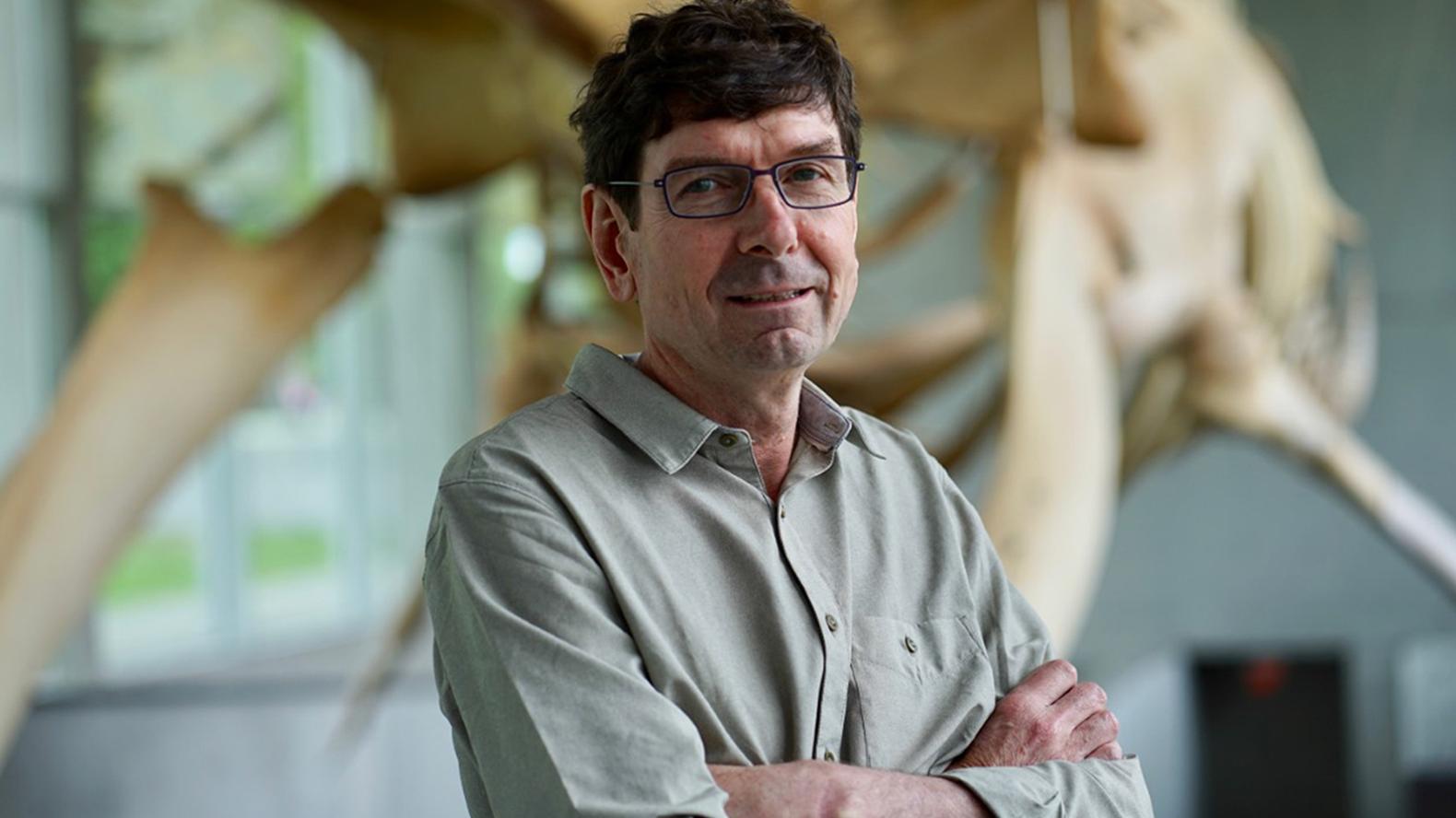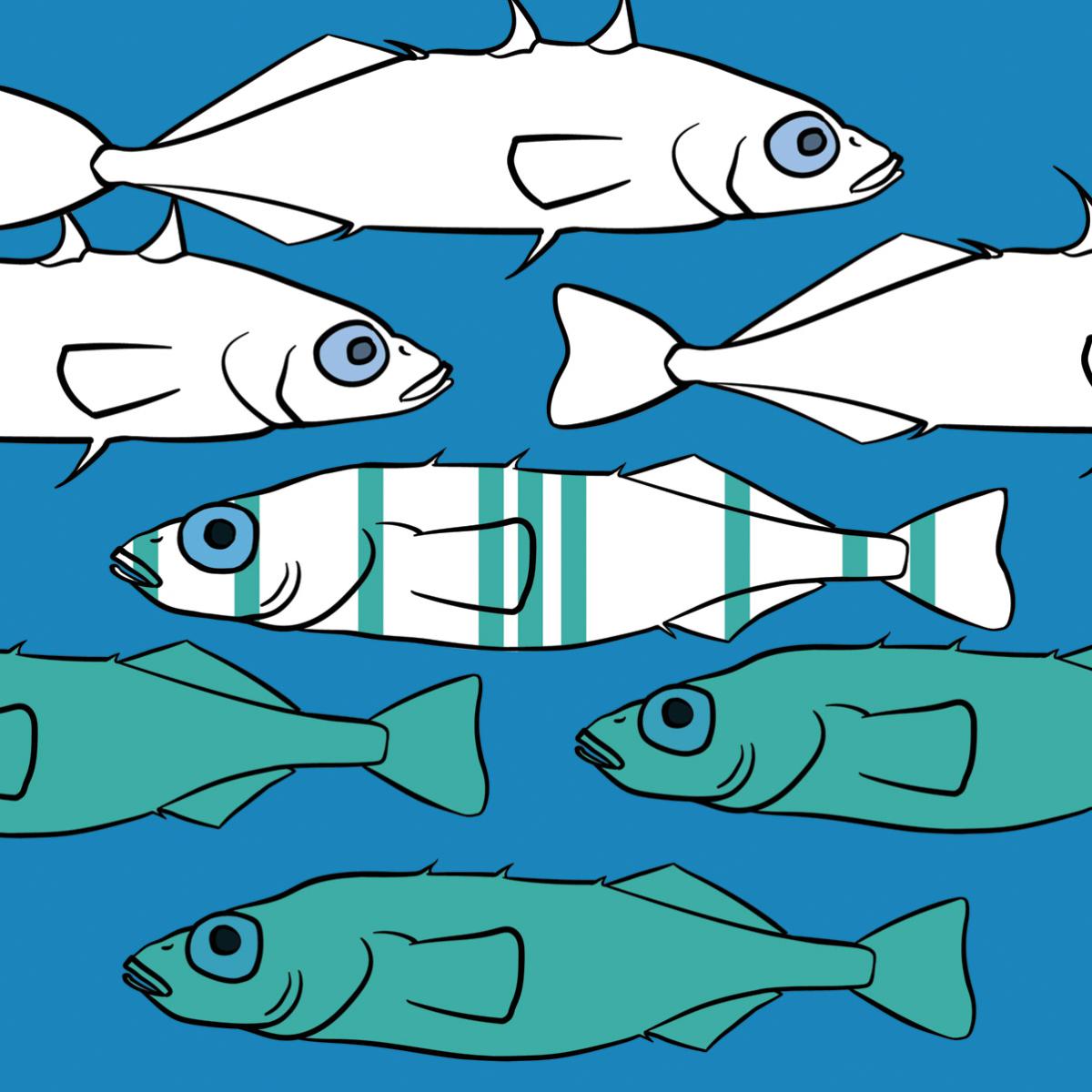
Over 150 years after the publication of "The Origin of Species", fundamental questions about evolution persist. Professor Schluter's work sheds light on ecological mechanisms in the course of evolution. All in all, he says, his career has been “pretty marvellous.” He’s revolutionizing our understanding of evolutionary biology while having a lot of fun.
Words by Linda Nowlan, Senior Director, Sustainability Hub, and an adjunct professor at the Allard School of Law.
Professor Dolph Schluter, a University Killam Professor of Zoology and winner of this year’s Crafoord Prize in Biosciences is fascinated by how species evolve. With over 55,000 citations for his research, he’s a world-renowned authority on the ecological role in the origin and divergence of new species.
It's clear from a recent interview that he greatly enjoys his experiments with three-spine stickleback fish. “The secret to work,” he says, “is that it is so much fun.”
You can see the fun on his lab's website, which profiles “the great cheese debate” – does adding a lump of orange cheddar cheese to stickleback traps improve the catch? Despite being the head of the lab and a cheese proponent, he doesn’t automatically win the debate after an inconclusive experiment: “Each camp can continue to hold on to private beliefs, with the assurance that no data (yet!) will prove them wrong.”

Image credit: Derek Tan – Beaty Biodiversity Museum
Stickleback Studies
Schluter’s research centres on stickleback species pairs – two distinct but closely related species living in the same lake. At about 70mm in length, each pair has a benthic (lake bottom) and a limnetic (water column) species. So far, the pairs have been found only in coastal lakes of southwestern British Columbia.
“What’s marvellous about the three-spine stickleback is the diversity of forms they exhibit,” says Schluter. At the end of the last ice age, the marine fish evolved into new species when they entered freshwater systems. Found today in lakes that are only 10,000 years old, these sticklebacks are some of the youngest species on Earth.
Schluter and his team investigate traits and genetic variations that contribute to survival and reproductive success. They observe how natural selection influences the development of advantageous traits in response to predators or changing environmental conditions. They also study the origin and persistence of species, focusing on the role of ecological selection and reinforcement in different environments. Lastly, they explore the genetic basis of species differences in collaboration with an international group of researchers.
Professor Schluter is deeply concerned about the rapid extinction of species. The stickleback species pairs he studies are among the most threatened species in the world, all listed under the Federal Species at Risk Act. Two of the known 5 pairs of species are already extinct, caused by invasive crayfish and catfish. He’s devoted to understanding why, and what can be done to protect those that remain.
Climate change is another threat. “More than ever, we need to know how species can adapt to a changing climate. It's clear that globally, lake temperatures are rising. How this will affect sticklebacks is as yet unknown,” said Schluter.
Exploring the Evolution of Sticklebacks in a Unique Research Facility
On south campus, he has built 20 outdoor ponds in which he raises sticklebacks imported from Texada Island. This large-scale facility, a global rarity at universities, was made possible by financial support from the Canada Foundation for Innovation and the BC Development Fund, along with contributions from UBC and the UBC Properties Trust.
Other professors use the facility including Mary O'Connor, Michelle Tseng, who work on experimentally warming aquatic ecosystems, insect communities, plankton and freshwater ecosystems and more.
It’s a bucolic place. During our interview, a student wandered the ponds, netting specimens of bright blue dragonflies flitting about.
To do this ground-breaking research, researchers need security of tenure for multi-generational experiments. Despite pressures of development that most UBC land faces, Dr Schluter has sought assurance from the UBC Board of Governors that the ponds will outlive the term of his agreement. This will be a critical issue as UBC’s new land use plan develops.
Seminal Prize
This year Schluter won the Royal Swedish Academy of Sciences Crafoord Prize, worth 6 million Swedish kroner ($780,000).
Dr Schluter’s citation notes his “fundamental contributions to the understanding of adaptive radiation and ecological speciation.” He travelled to Sweden to speak and take part in events culminating in an acceptance ceremony with the King and Queen of Sweden. He was surprised and extremely honoured when chosen, noting the significance of awarding the Prize to the field of evolutionary biology this year.
Advice for Students
Professor Schluter advises students interested in pursuing a career in biology to read theory and delve into older works by scientists and naturalists. David Lack's "Darwin's Finches" was such an inspirational book for him.
He believes the importance of Darwin's ideas has grown over the years and now pervades all areas of biology. “We can see evolution before our very eyes. We all had ringside seats to this crazy pandemic, and we learned some important things about evolution from the study of successive Covid variants,” he noted, adding that research is significant not just to “unadulterated wilderness, but to the world in which people live and get sick from a new disease.”
Looking Ahead
Future research this fall will lead Professor Schluter to Enos Lake on Vancouver Island. By extracting DNA from sediment cones containing 10,000-year-old stickleback spines, he aims to investigate the stickleback population in the lake prior to the invasion of crayfish.
Professor Schluter and his colleagues hope to gain insights into the evolutionary history of stickleback species, specifically their adaptation from saltwater to freshwater environments.
Conclusion
Over 150 years after the publication of "The Origin of Species", fundamental questions about evolution persist. Professor Schluter's work sheds light on ecological mechanisms in the course of evolution. All in all, he says, his career has been “pretty marvellous.” He’s revolutionizing our understanding of evolutionary biology while having a lot of fun.
